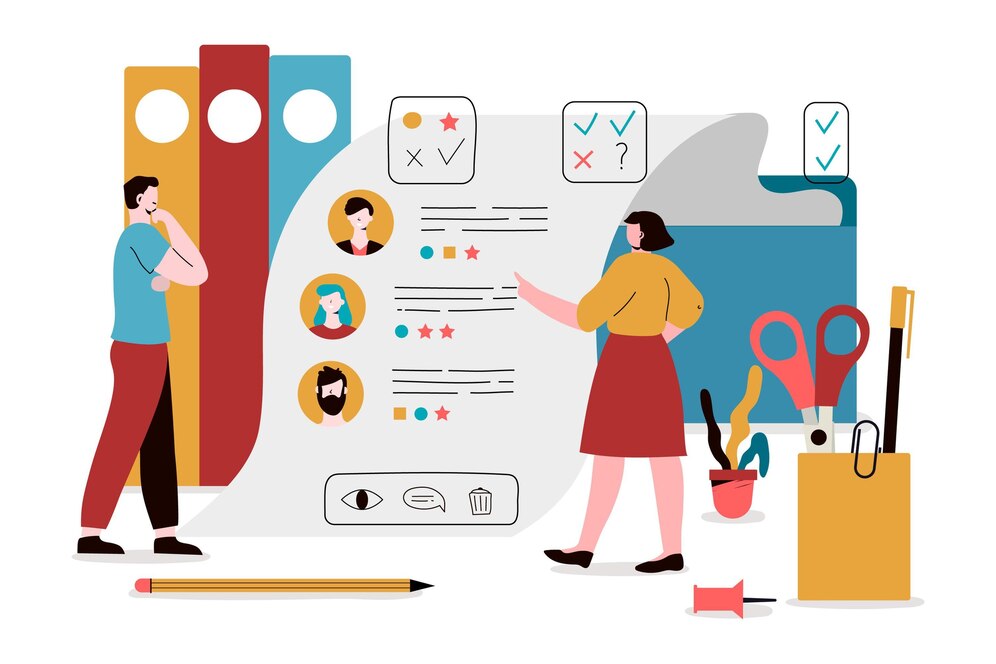In the dynamic landscape of job hunting, the one-size-fits-all approach doesn’t cut it. Each job opportunity is unique, requiring a tailored approach that aligns your qualifications with the specific needs of the role. In this guide, we’ll delve into the art of tailoring your resume for different job applications—a strategic process that enhances your chances of standing out in a sea of applicants. Whether you’re a seasoned professional or a freelancer exploring new opportunities, adopting a customized approach to resume tailoring is essential for maximizing your impact.
Understanding the Importance of Resume Tailoring
Before we embark on the strategic approach, let’s grasp why tailoring your resume is a non-negotiable step in the job application process. A tailored resume demonstrates to employers that you’ve taken the time to understand their unique requirements and showcases how your skills and experiences directly align with the demands of the position. It’s not about reinventing yourself for every application but rather highlighting the most relevant aspects of your professional journey.
Imagine you’re a freelance graphic designer applying for roles in both branding and digital marketing. While your core skills remain consistent, tailoring your resume allows you to emphasize specific experiences and achievements that align with each role’s distinct demands.
A Strategic Approach to Tailoring Your Resume
Tailoring your resume is not a one-size-fits-all task. It involves a thoughtful and strategic process to ensure that your qualifications shine in the context of each job application.
1. Thoroughly Review the Job Description
The job description is your roadmap for tailoring your resume. Carefully read through the requirements and responsibilities outlined by the employer. Identify key skills, qualifications, and specific experiences they are seeking. This initial step sets the foundation for customizing your resume.
For instance, if a job description emphasizes project management skills and experience with a particular software, note these details as crucial elements to highlight in your tailored resume.
2. Identify Core Themes and Keywords
Once you’ve dissected the job description, identify core themes and keywords that consistently appear. These are the pillars around which you’ll tailor your resume. Whether it’s a focus on leadership, technical expertise, or specific industry-related terms, these keywords should become focal points in your customized resume.
Consider a freelance writer applying for roles in both content creation and social media management. The core themes might include storytelling, audience engagement, and platform-specific skills, each becoming a keyword to integrate strategically.
3. Customize Your Professional Summary
Your professional summary is the first impression you make on a recruiter. Tailor it to reflect your alignment with the specific job you’re applying for. Incorporate key themes and keywords from the job description to immediately capture the recruiter’s attention and convey your suitability for the role.
Imagine a freelance project manager tailoring their professional summary to highlight their expertise in Agile methodologies, team leadership, and successful project deliveries, aligning with the key themes identified in the job description.
4. Highlight Relevant Skills and Achievements
In the skills and achievements sections of your resume, prioritize those that directly align with the job requirements. Tailor this section to emphasize the skills and accomplishments that make you an ideal candidate for the specific role. Use quantifiable achievements wherever possible to add substance.
For example, if a job description emphasizes data analysis skills, a freelance market analyst might highlight achievements such as “led a team in analyzing market trends, resulting in a 15% increase in strategic decision-making accuracy.”
5. Adjust Work Experience Descriptions
Tailor your work experience descriptions to emphasize the aspects most relevant to the job application. Focus on achievements and responsibilities that directly align with the employer’s needs. Consider the scope of your role in each context and emphasize the elements that resonate with the specific position.
A freelance UX designer applying for roles in both e-commerce and mobile app development might adjust work experience descriptions to highlight relevant projects and achievements in each domain.
Frequently Asked Questions (FAQs) about Resume Tailoring
1. How much should I tailor my resume for each job application?
The degree of tailoring depends on the differences between the roles you’re applying for. In general, aim to tailor key sections such as the professional summary, skills, and achievements for each application. Adjusting work experience descriptions can be more extensive if the roles vary significantly.
2. Is it acceptable to have multiple versions of my resume for different job applications?
Yes, having multiple versions of your resume is acceptable and even advisable. It allows you to highlight different facets of your experience and skills for diverse roles. Save each version with a clear filename to easily track and submit the most relevant one for each application.
3. How do I tailor my resume for a career change?
Tailoring your resume for a career change involves emphasizing transferable skills and showcasing relevant experiences. Focus on accomplishments and responsibilities that demonstrate your ability to excel in the new field. Leverage your unique perspective and diverse skill set as an asset.
4. Should I include every skill and experience from my entire career in a tailored resume?




